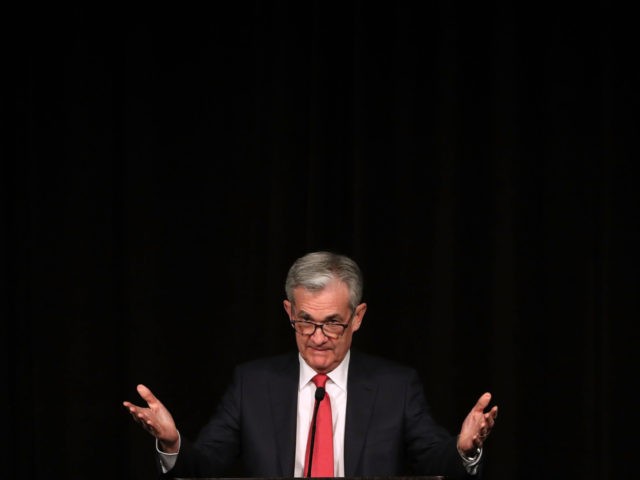Federal Reserve officials believed trade tensions were at the heart of the stock market sell-off at the end of 2018, apparently missing the role statements from Fed officials themselves were playing, the minutes released Wednesday from the central bank’s December meeting showed.
Many investors were concerned that the Fed appeared t0o determined to raise rates aggressively after an October interview with Jerome Powell in which the Fed chairman said monetary policy was “a long way from neutral.” This gave rise to the fear that the Fed could make a policy mistake, raising rates so far that it would halt the economic expansion and possibly trigger a recession.
After the December meeting, which was followed by a press conference in which Powell attempted to communicate a less aggressive stance on rate, investors still perceived the Fed as intent on raising rates in 2019 and inadequately attentive to risks the economy could slow down. Many now believe that led to the steep sell-off in stocks in December.
Fed officials have since endeavored to communicate a very different message, with multiple Fed officials saying the Fed will be patient when it comes to interest rate hikes, noting that inflation is low and risks to growth heightened. The market has responded by pushing stocks higher, which has added credibility to the view that concerns over Fed policy were largely responsible for the December decline in stock prices.
But as recently as the December meeting, which took place before the steepest decline in stocks, Fed officials did not see their own statements and policies as the prime movers of market volatility. Instead, they thought trade tensions, slowing global growth, and risks to corporate profits were the culprits, the Fed minutes show.
“Concerns over escalating trade tensions, global growth prospects, and the sustainability of corporate earnings growth were among the factors that appeared to contribute to a significant drop in U.S. equity prices,” the minutes report the Fed’s staff told its policymakers.
In the summary of the views of policymakers, the minutes report that “contacts in a number of Districts appeared less upbeat than at the time of the November meeting, as concerns about a variety of factors–including trade policy, waning fiscal stimulus, slowing global economic growth, or financial market volatility–were reportedly beginning to weigh on business sentiment.”
According to the minutes:
Some participants commented that these developments may reflect an increased focus among market participants on tail risks such as a sharp escalation of trade tensions or could be a signal of a significant slowdown in the pace of economic growth in the future. A couple of participants noted that the tightening in financial conditions so far did not appear to be restraining real activity, although a more persistent tightening would undoubtedly weigh on business and household spending. Participants agreed to continue to monitor financial market developments and assess the implications of these developments for the economic outlook.
Only once did the Fed see monetary policy as a risk, and that was only to refer to possible future risks. It did not mention the Fed as a source of stock market volatility.
Various factors that could pose downside risks for domestic economic growth and inflation were mentioned, including the possibilities of a sharper-than-expected slowdown in global economic growth, a more rapid waning of fiscal stimulus, an escalation in trade tensions, a further tightening of financial conditions, or greater-than-anticipated negative effects from the monetary policy tightening to date.
Remarks from Fed officials this week and last, including statements from Fed officials Wednesday, appeared to implicitly acknowledge a belated realization of the Fed’s role in market volatility–and took aim at calming markets.
The Fed’s realization that it was itself a source market volatility may itself be a calming element. It shows that central bankers are no longer blind to what nearly everyone else was seeing.

COMMENTS
Please let us know if you're having issues with commenting.